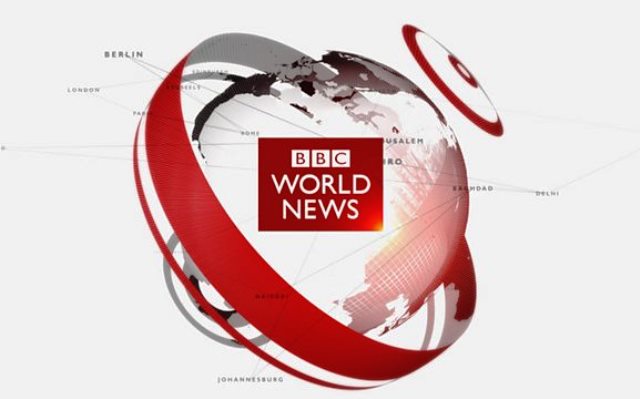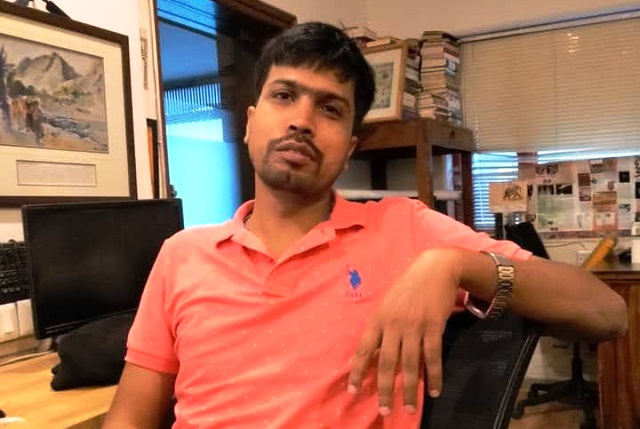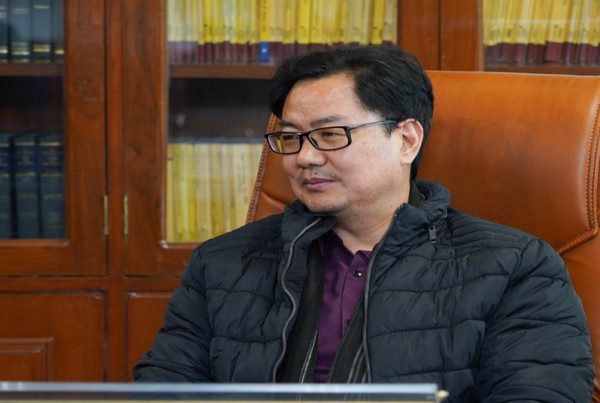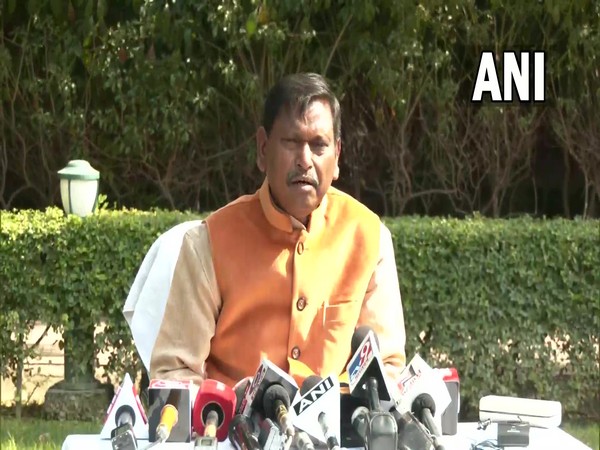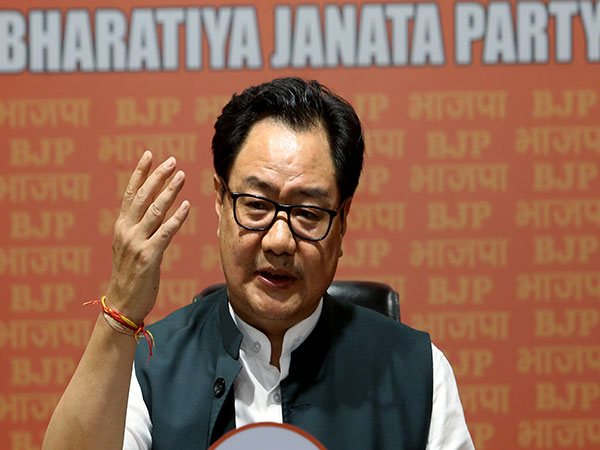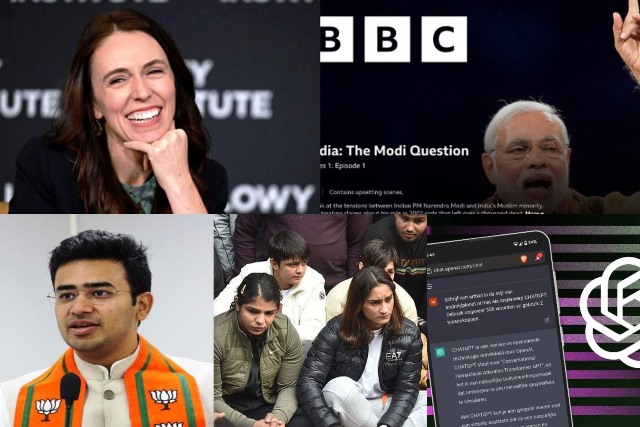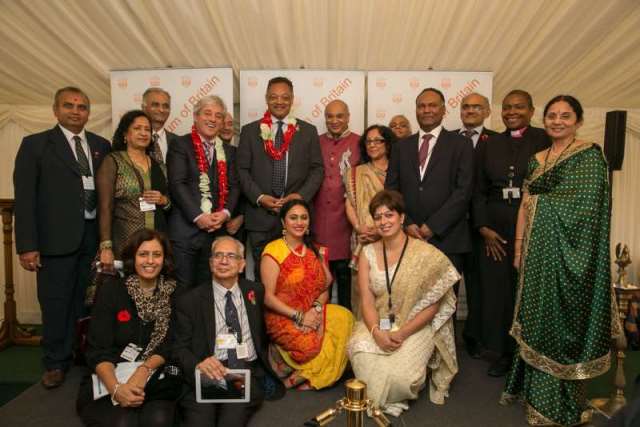Terming BBC documentary on Prime Minister Narendra Modi as “propaganda video” and a “disgraceful piece of shoddy journalism,” British MP Bob Blackman has said that it should never have been released and that it didn’t look at the “all-important fact” that India’s Supreme Court investigated the claims against Narendra Modi in connection with the 2002 riots and found that there is not a shred of evidence to support them.
In an interview with ANI, Blackman also talked about the issue “around the review of the British Broadcasting Coropration’s (BBC) tax affairs” in the context of Income Tax department’s survey at its offices in India and said “this is nothing new and has been going on for quite sometime”.
He said there have been discussions between the Income tax authorities in India and the BBC and the broadcaster has to follow the relevant rules and regulations.
Blackman is a member of ruling Conservative and MP for Harrow East, said that as Chief Minister of Gujarat in 2002, Narendra Modi had done his best to try and appeal for calm during the riots.
Blackman accused the BBC documentary of casting aspersions and said it is extremely regrettable because it would seem as if there was some sort of agenda of BBC to disrupt UK-India relations. “I think that’s a great shame.”
Noting that the British government regards India as a strong friend, a strong ally and the two countries were negotiating a trade deal, he said anything that disrupts the process is extremely regrettable.
The British MP said the Indian government has done a remarkable job under PM Modi of transforming the country’s economy and it is on track to become the leading economy in the world.
Blackman said the BBC video on PM Modi was “full of innuendos” and it was produced by an external organisation and overseen by the British broadcaster.
“The so-called documentary which is more of a propaganda video, if you like in a two-part series… (was) disgraceful piece of shoddy journalism with an attack on Narendra Modi, both in his time as Chief Minister of Gujarat and then his time as Prime Minister….(was) completely full of innuendos,” the British MP said.
“It should never have been broadcast by the BBC because the BBC has a worldwide reputation. People think, oh my goodness, this must be true. But, it was produced by an external organisation, overseen by the BBC….it (documentary) is far from the truth… it actually did not look in detail into the causes for the Gujarat riots 20 years ago and it certainly didn’t look at the all important fact that the Supreme Court thoroughly investigated all the claims against Narendra Modi and found that not a shred of evidence to support them,” he added.
Bob Blackman has been the Conservative Member of Parliament for Harrow East since 2010. He was Greater London Assembly member for Brent and Harrow for four years, after ousting the Labour Leader on the GLA in June 2004.
According to his website, Blackman was also a Councillor for the Preston Ward in Brent for 24 years, serving as leader of the Brent Conservatives from 1990 to 2010, before stepping down in order to stand as the Conservative candidate for Harrow East.
The UK MP said that as Chief Minister of Gujarat in 2002, Narendra Modi had looked to additional police resources, not only within Gujarat but beyond and eventually had called in the army to help quell the riots.
“They showed a film of him making appeals for calm and encouraging people to not to riot…. (they) put a whole series of different montages together with different people… I don’t know people involved but it was clear they had an axe to grind against Narendra Modi,” Blackman said.
The central government had last month issued directions for blocking YouTube videos and Twitter posts sharing links to the controversial BBC documentary ‘India: The Modi Question’.
The Ministry of External Affairs had termed it a “propaganda piece”, saying it reflected a “colonial mindset”.
Referring to the tax survey, Blackman said BBC has to ensure “they are caught with the rules and regulations”.
“Obviously, this is a survey where the income tax authorities have looked to gather the evidence to establish if the BBC is doing anything wrong, I would say quite openly, this is the BBC’s job and operating within India, is to make sure they are caught with the rules and regulations, and I am sure it will be cleared up very quickly, but you know that’s upto the tax authorities so… (for) BBC to make sure they are caught up with the rules that operate here,” he said.
The British ruling party MP said that some sections were seeing the action as an attack on the media which according to the MP was not an accurate assessment.
“It’s a review, it is a survey….the moment there haven’t been suggestions of charges or anything like that…let the authorities operate, let the BBC act as they have done in an open and transparent way, providing access to all the records and all the information and let the tax authorities come to their conclusion. I trust that we clear up very quickly because it is for the benefit of the tax authorities and for the BBC.”
Income Tax-related surveys at BBC’s India offices started on Tuesday.
Sources had said that the Income Tax department conducted a survey at BBC’s offices in Delhi and Mumbai in view of its “deliberate non-compliance” with the “Transfer Pricing Rules and its vast diversion of profits.” The survey concluded on Thursday.
Asked if the BBC documentary could in some way be reflective of the view of the British government, Blackman dismissed any such suggestion and said the BBC is not an arm of the British government.
He said the British government regards India as a strong friend and a strong ally.
“Let’s be very clear, the BBC is not an arm of the British government. In fact, the BBC is frequently critical of the British government and, actually to be fair, critical of all the British government that has been that’s their job, their job is to ask questions, to look for evidence. But the key here is you can ask questions but when there is evidence to the contrary and it’s quite clearly not the case, then you shouldn’t be casting aspersions. I think that is the difference here, which I think it is extremely regrettable because it would seem as if there was some sort of agenda of the BBC to disrupt UK-India relations,” said Bob Blackman to ANI.
Blackman said he had asked the British government of its policy and was told that BBC is an independent organisation they must do whatever they choose to do but it is not the policy of the British government.
“The British government regards India as a strong friend and a strong ally. We signed an agreement a year ago, now an agreement on security, defence and other matters and that demonstrates the goodwill between our countries. We are two countries with a shared past and tremendous future ahead of us and we are at the moment negotiating what could be an incredible free trade deal which would benefit India and the United Kingdom. So, anything that disrupts that is extremely regrettable, particularly when it’s with our foundation,” added Blackman.
He expressed hope that the documentary episode will not impact relations between India and UK.
Answering a query, he said one thing he agreed with in “the propaganda video” is the final comments which said that Narendra Modi and the BJP government will probably be re-elected next time and the time after.
“So they deserve it because the Indian government have done a remarkable job under the Narendra Modi of transforming the economy in India, leading India to become the fifth biggest economy now in the world, on track to become the leading economy in the world, by the way it is going and the most populous country in the world. We also have to celebrate that India is the biggest democracy in the world where the government can be replaced if that’s what the people decide,” said Blackman.
“From that perspective, it’s very important that we build the friendship, we build the relationship between the two countries and we do so because obviously India has the G20 role this year.”
Blackman, who has been an MP since May 2010, said, India will be welcoming the leaders of the world this year and “it’s important that we cement our good relations”.
“If we don’t, that would be detrimental to India and also to the United Kingdom,” he said. (ANI)
Read More:http://13.232.95.176/
